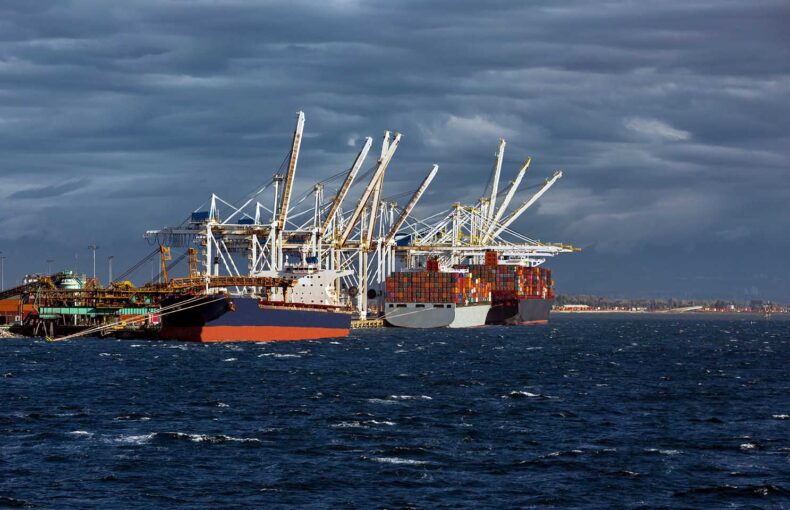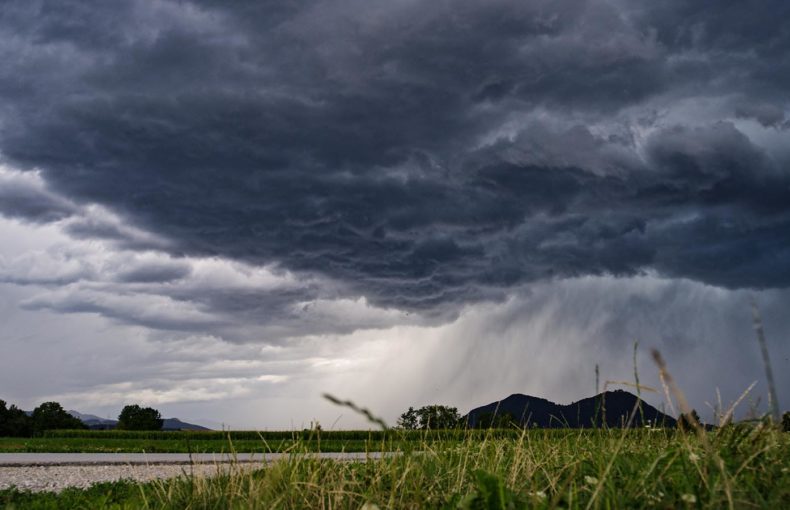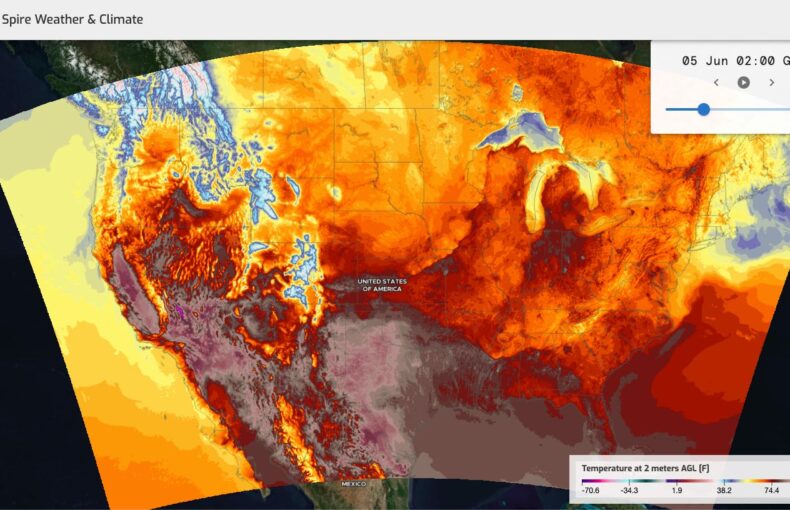High chance of optimization in the weather forecast
Businesses and government agencies without weather strategies may be exposing themselves to risks and missing out on growth opportunities.
If a few days of bad weather can spoil a vacation, just imagine what they can do to global businesses and governmental operations. Adverse conditions can disrupt agriculture, aviation, maritime, energy, retail, transportation, construction, mining, insurance, entertainment, and travel, among other industries. They can upset supply chains and even threaten infrastructure and workforces.
“Weather impacts all commercial activities with 70% of companies exposed to ‘severe weather risk,’” according to a report from financial services organization Allianz.
When added together, the total costs of severe weather for businesses and governments are staggering. The United States suffered 14 billion-dollar disasters in 2019, causing $45 billion of losses, with the total cost of climate and weather disasters since 1980 totaling $1.75 trillion. Even routine weather fluctuations can cause a 3% to 6% variation in U.S. gross domestic product, the National Weather Service estimated.
As operations become increasingly global, with sales and supply chains stretching across the globe, organizations may become vulnerable to weather fluctuations on the other side of the planet. What’s worse, climate change and the increasing likelihood of severe weather will only exacerbate existing risks.
It is time to consider weather strategies.
“Consistency in your forecast is essential and is exactly what radio occultation data offers.”
Share on Facebook Share on Twitter Share on LinkedIn
This calls for a strategy
Under these mounting pressures, precision weather forecasts are becoming essential for businesses and government agencies. “Accurate forecasting can optimize your operations,” said Durjoy Mazumdar, global weather solution sales at Spire Global.
Since the weather impacts performance everywhere, Mazumdar said, it’s vital to have constant, reliable information across operations, cities, and regions. Organizations and agencies should also champion and standardize strategies at a senior level, implementing them as broadly as possible to promote more significant results.
Radio occultation is the error-reducing ingredient
With so much at stake, the forecasts that businesses and government agencies base their weather strategies on should be as accurate as possible. That’s why Spire recommends using weather forecasts supported by radio occultation data. A leading weather organization recently identified radio occultation observations as a top-five data type for reducing errors in forecasting.
This remote sensing technique captures detailed temperature, humidity, and pressure information across the planet using satellites. Taking exact measurements around the world improves local forecasts since weather systems connect globally. Global measurements also help grant organizations consistent forecasting detail across international operations.
“If you don’t have the same quality of data in Namibia as in North Dakota, you can’t make a consistent assessment of what you want to do,” said Mazumdar. “Consistency in your forecast is essential and is exactly what radio occultation data offers.”
Using satellites to take measurements can also help reduce the risk of local or international crises disrupting data collection. For example, COVID-19 travel restrictions grounded air traffic, depriving weather forecasts of the data collected by sensors on planes. The shortfall threatened forecasting accuracy until radio occultation data helped fill the gap.
As Mazumdar summarized: “The better data you have for your inputs, the better results you get in your output.”
Here’s how weather strategies can help reduce risks and boost rewards for five major industries:
Spire Weather offers industry-specific forecasts and easy-to-use APIs.
Share on Facebook Share on Twitter Share on LinkedIn
Agriculture
Foul weather poses immediate threats to the agricultural industry. Take the historically wet season that struck the U.S. Corn Belt in 2019. The rains and flooding disrupted farmers’ planting schedule and caused $3 billion in losses in March alone.
Agricultural forecasts support operations that could help lead to better yields and greater sustainability by warning farmers about what lies ahead. For example, automatic alerts about a steep drop in temperature can help farmers save crops from frost damage. And seasonal rain forecasts may help farmers better estimate crop output for loan negotiations.
Maritime
The maritime industry has been at the mercy of the weather since time immemorial. Modern-day forecasting gives shippers a new edge. Radio occultation data helps improve forecast accuracy at sea. Navigation systems that include maritime-specific forecasts are more equipped to identify hyper-efficient routes that reduce downtime and fuel consumption. And forecast updates help shippers avoid costly weather-related disruptions. The list of benefits of adopting weather strategies goes on.
Aviation
Everyone despises flight delays—even airlines. Delays cost airlines upwards of $4,500 an hour, and inclement weather causes 70% of setbacks. Anticipating delays is just one of many use cases of weather predictions for the aviation industry. Detailed global forecasts can help minimize risks to passengers and crew by identifying patches of turbulence for pilots to avoid. They can also help plot efficient routes that optimize fuel consumption and flight time.
Energy
Weather conditions influence energy demands. During hot days people turn on their fans and air conditioners, and on frigid winter nights, they turn up their heating. As a result, electric load forecasting uses weather models to anticipate energy needs.
“Providing basic real—time meteorological data—including observations of temperature, wind velocity, rainfall, radar and satellite imagery—is a valuable service needed to underpin decision-making in this sector,” according to the World Meteorological Organization. “All decision-makers also require good forecasts and climatological norms of these parameters where scientifically possible for informed decision-making.”
According to a study in Nature, forecasting is particularly important when dealing with renewables since the weather also influences energy production, not just demand.
“Anomalous seasons such as extremely cold winters or low-wind summers can seriously disrupt renewable energy productivity and reliability,” the researchers wrote. “Better seasonal forecasts providing more accurate information tailored to stakeholder needs can help the renewable energy industry prepare for such extremes.”
Retail
No retailer wants a full sale rack because weather conditions dashed business expectations. But it happens. A warmer than average winter in 2015 put off shoppers from buying sweaters and jackets at retailer Macy’s, hurting sales, Reuters reported.
Precision forecasting can help retailers optimize short- and long-term decision-making. If a food retailer knows it will be unusually sunny for the next three days in London, for example, it can stock shelves with more sandwiches because it knows more people will be eating in the park. If an automotive organization knows winter will be unusually cold in the Pacific Northwest but warmer than average in the Northeast, it can plan to send snow tires where they’re needed most.
Since supply chains span the globe, retailers of all kinds can turn to global weather forecasting to anticipate potential disruptions to production and delivery worldwide.
The weather forecast is bright
Spire Weather offers industry-specific forecasts and easy-to-use APIs so you can access forecasts seamlessly. You can also trust the service will only get better. Our global weather observation network collects about 10,000 radio occultation profiles a day, which is already enough to boost our forecast’s accuracy. Our vision is to collect about 100,000 profiles a day. The forecast is bright for companies and government agencies with weather strategies.
 Written by
Written by


